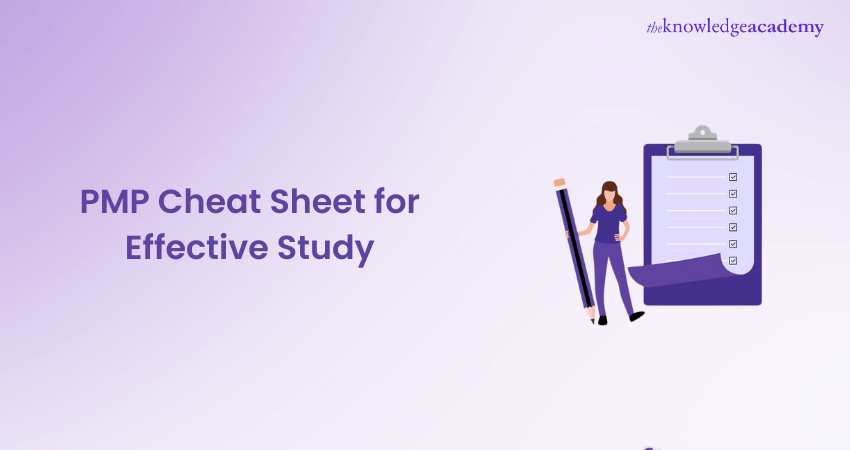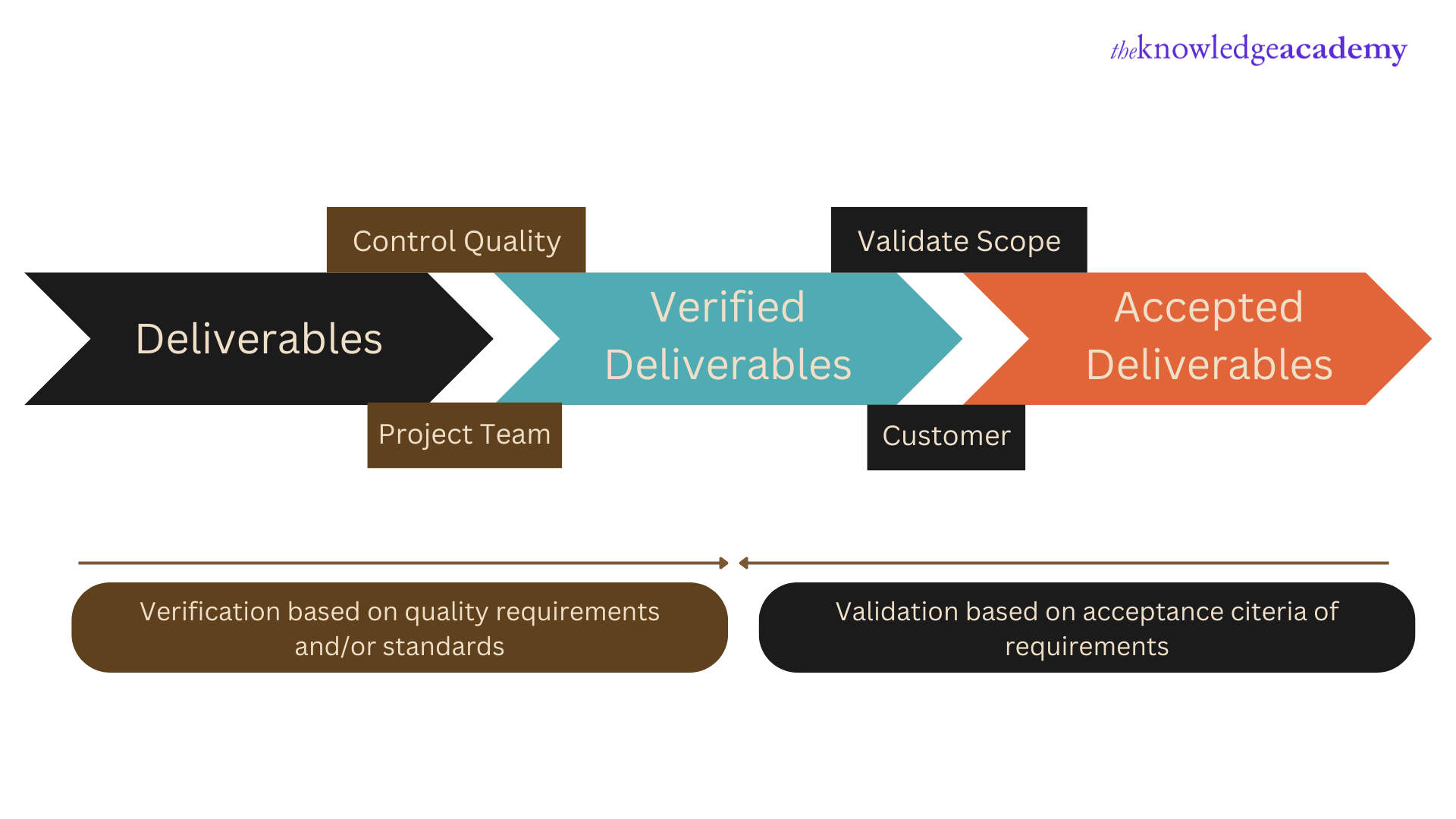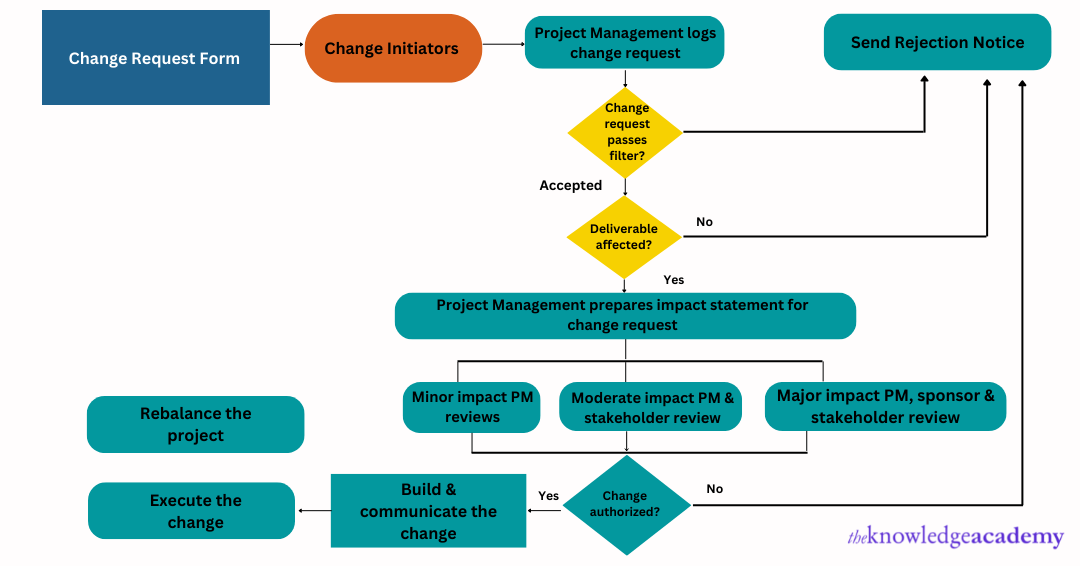We may not have the course you’re looking for. If you enquire or give us a call on 01344203999 and speak to our training experts, we may still be able to help with your training requirements.
Training Outcomes Within Your Budget!
We ensure quality, budget-alignment, and timely delivery by our expert instructors.

PMP-certified professionals are recognised and appreciated by organisations worldwide - for their knowledge and understanding of the skills and techniques; to effectively manage projects within the stipulated time and set constraints.
Skilled PMP professionals are in high demand to successfully manage and complete projects precisely. According to a PMI’s Earning Power survey, PMP-certified professionals can expect a 16% higher salary than non-certified professionals globally. Currently, there are more than 1,200,000 PMP-certified professionals worldwide.
A PMP certification holder can expect an average base PMP salary of £55,000 a year, according to PayScale salary estimates.
Table of Contents
1) What is PMP?
2) What is the need for a PMP Cheat Sheet?
3) Formulas in PMP Cheat Sheet
4) What are the Domains of PMP?
5) Conclusion
What is PMP?
The Project Management Professional (PMP) certificate validates the certification holder's understanding and knowledge to manage and handle projects efficiently. It demonstrates the project manager's experience, skill, qualification, and competence required to deal with complex projects.
PMP is administered by Project Management Institute (PMI). It is one of the most sophisticated certifications sought after by professionals and accepted by most industries. You can expect several growth opportunities as project management is anticipated to create many PMP job opportunities with lucrative salary packages in the years ahead.
What is the need for a PMP Cheat Sheet?
A cheat sheet is typically a set of concise notes intended to aid one’s memory. It is most widely used by students for quick reference before examinations. The name ‘cheat sheet’ is derived by historically representing the students who would use the cheat sheets without the knowledge of a teacher or instructor.
A PMP cheat sheet can help you with a quick review of concepts, formulas, and techniques necessary to prepare for the PMP exam at the last minute.
Formulas in PMP Cheat Sheet
Typically, formulas compute several kinds of values and functions. As the scope of Project Management is vast, the number of formulas to be considered is several and dependent on many factors.
Concerning the PMP exams perspective, the following formulas are the essential PMP formulas mentioned in the cheat sheet. The PMP formulas listed below are vital to understanding those willing to appear for the PMP exam. So, let us have a look at them:
|
SL No. |
Name |
Acronym |
Formula |
|
1 |
Future Value |
FV |
PV (1 + i)^n |
|
2 |
Present Value |
PV |
FV/ (1 + i)^n |
|
3 |
Target price |
|
Target cost + Target fee |
|
4 |
Point of Total Assumption |
PTA |
[(Ceiling price – Target price) / Buyer’s share ratio] + Target cost] |
|
5 |
Communication channel |
|
n (n -1) / 2 |
|
6 |
Earned Value |
EV |
% Complete x Budget at completion (BAC) |
|
7 |
Cost Variance |
CV |
Earned value (EV) – actual cost (AC) |
|
8 |
Schedule Variance |
SV |
Earned value (EV) – planned value (PV) |
|
9 |
Actual Cost |
AC |
Actual Cost is the realised cost incurred for the work performed for a specific activity during a definite time period. |
|
10 |
Cost Performance Index |
CPI |
EV / AC |
|
11 |
Schedule Performance Index |
SPI |
Earned value (EV) / Planned value (PV) |
|
12 |
Estimate At Completion |
EAC |
BAC / CPI |
|
13 |
|
EAC |
AC + Bottom-up ETC |
|
14 |
|
EAC |
AC + (BAC – EV) |
|
15 |
|
EAC |
AC + [(BAC – EV) / (CPI x SPI)] |
|
16 |
Estimate To Complete |
ETC |
EAC – AC |
|
17 |
Variance at completion |
VAC |
BAC – EAC |
|
18 |
Estimate to complete |
|
EAC – AC |
|
19 |
To complete performance index |
TCPI |
(BAC – EV) / (EAC – AC) |
|
20 |
Standard deviation |
SD |
Pessimistic – Optimistic / 6 |
|
21 |
Pert Formula Beta |
|
(P + 4M + O) / 6 |
|
22 |
Expected monetary value |
EMV |
Probability * Impact |
|
23 |
Risk Priority Number |
RPN |
Detection * Occurrence * Severity |
|
24 |
Cost Plus Percentage of Cost Contract |
CPPC |
Cost + % of cost as a fee |
|
25 |
Cost Plus Fixed Fee Contract |
|
Cost + fee of fixed amount |
|
26 |
Cost Plus Award Fee Contract |
|
Cost + award fee |
|
27 |
Cost Plus Incentive Fee Contract |
|
Cost + incentive fee |
|
28 |
Return on Investment |
ROI |
(Net profit / cost of investment) * 100 |
|
29 |
Payback period |
|
initial investment / periodic cash flow |
|
30 |
Cost-Benefit Ratio |
CBR |
Net present value of investment / initial investment cost |
Join PMI-ACP Certification Training now to gain experience and skills in agile methodologies of project management.
What are the Domains of PMP?
There are three key domains of PMP listed below:
Domain 1: People
This domain concentrates on creating a high-performance team.
The lessons under this domain cover the following:
1) T-shaped Skills
2) Focus groups
3) RACI
4) Ground rules/Social contract
5) Project charter vs. Team charter
6) Absolute time estimates vs. Relative measure
7) Face-to-face communication in a virtual team, Fishbowl window
8) User Story, Definition of Ready, Acceptance Criteria, Definition of Done
9) Resource management plan
10) Training, Paring, Mentoring, Baselining
11) Five stages of the Tuckman model:

12) Four Agile ceremonies
13) Four backlog prioritization techniques
14) Four techniques to get consensus
15) Four codes of ethics
16) Two techniques for establishing a shared vision
Domain 2: Processes
Scope
1) Scope Baseline
2) Scope creep
3) Requirement Management Plan vs. Scope Management Plan
4) Elicitation Techniques: Decision-making techniques, Mind mapping vs. Affinity Diagram, Prototypes vs. Storyboarding
Schedule
1) Types of activity dependencies
2) Types of relationship
3) Schedule formats and compression techniques
4) Resource levelling, Resource smoothing
Cost
1) Cost baseline vs. Funding requirement
2) Funding limit reconciliation
3) Three estimate types and techniques
4) Three elements of activity cost
Quality
1) Cost of Quality
2) Verification

3) PMP Audit
4) Five Quality measurement tools
Integration
1) Project baseline and Subsidiary plans
Procurement
1) Four legal concepts
2) Three contract types
3) Bidder conferences
4) Source selection criteria
5) Negotiation, Alternative Dispute Resolution
Risks
1) Positive risks (Opportunities) vs. Negative risks (threats)
2) Risk Breakdown Structure
3) Contingency plan, Fallback plan
4) Positive risk response strategies
5) Negative risk response strategies
6) Probability and Impact matrix
Changes:
1) Causes of Changes
2) Components of approved changes
3) Deliver change management process flowchart

Communications
1) Communication methods
2) Stakeholder communication requirements and escalation process
3) Sources of noise in the communication model
Stakeholders
1) Stakeholder engagement plan, matrix, and approaches
2) Stakeholder register vs. stakeholder management plan
3) Five engagement levels in the stakeholder engagement assessment matrix
Domain 3: Business Environment
1) Three types of PMO (Project Management Office)
2) Four common compliance categories
3) Four common benefit management techniques
4) Four Types of Organisational Structures
5) Organisational Process Assets vs. Enterprise Environmental Factors
6) Kaizen vs. Deming cycle (P-D-C-A or P-D-S-A)
7) Tolerance and Escalation procedures
And finally, to keep the team on track, you need to learn and understand the following PMP concepts.
1) Four characteristics of servant leadership
2) Five Elements of Emotional Intelligence:
3) Four Organisational Theories: Maslow, McGregor, McClelland, Herzberg
4) Three stakeholder classification tools: Power grid, Salience mode and Stakeholder cube
5) Six performance report types
6) Value Stream Map
7) Halo effect
Conclusion
A PMP cheat sheet is a concise sheet which serves a limited purpose to brief the concepts and help you review on a tight schedule. You can brush up on the formulas at the last minute of PMP exam preparation and make sure you revise and remember them. Anyways, you must learn the concepts in detail and use cheat sheets only as referral material to ensure you don't miss out on any essential information related to the exam syllabus.
To get certified with project management professional training, join the PMP Training Course now!
Frequently Asked Questions
Upcoming Project Management Resources Batches & Dates
Date
 PMP® Certification Training Course
PMP® Certification Training Course
Mon 6th Jan 2025
Mon 13th Jan 2025
Mon 20th Jan 2025
Mon 27th Jan 2025
Mon 3rd Feb 2025
Mon 10th Feb 2025
Mon 17th Feb 2025
Mon 24th Feb 2025
Mon 3rd Mar 2025
Mon 10th Mar 2025
Mon 17th Mar 2025
Mon 24th Mar 2025
Mon 31st Mar 2025
Mon 7th Apr 2025
Mon 14th Apr 2025
Tue 22nd Apr 2025
Mon 28th Apr 2025
Tue 6th May 2025
Mon 12th May 2025
Mon 19th May 2025
Tue 27th May 2025
Mon 2nd Jun 2025
Mon 9th Jun 2025
Mon 16th Jun 2025
Mon 23rd Jun 2025
Mon 30th Jun 2025
Mon 7th Jul 2025
Mon 14th Jul 2025
Mon 21st Jul 2025
Mon 28th Jul 2025
Mon 4th Aug 2025
Mon 11th Aug 2025
Mon 18th Aug 2025
Tue 26th Aug 2025
Mon 1st Sep 2025
Mon 8th Sep 2025
Mon 15th Sep 2025
Mon 22nd Sep 2025
Mon 29th Sep 2025
Mon 6th Oct 2025
Mon 13th Oct 2025
Mon 20th Oct 2025
Mon 27th Oct 2025
Mon 3rd Nov 2025
Mon 10th Nov 2025
Mon 17th Nov 2025
Mon 24th Nov 2025
Mon 1st Dec 2025
Mon 8th Dec 2025
Mon 15th Dec 2025







 Top Rated Course
Top Rated Course



 If you wish to make any changes to your course, please
If you wish to make any changes to your course, please


